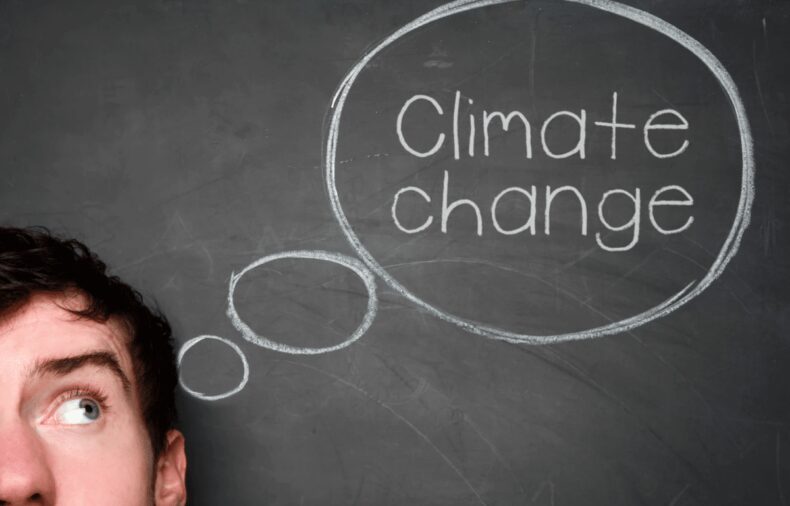Mental health is having a face off with a formidable enemy this time,as climate change is haphazardly wreaking havoc in the human realm,the new arrival is named as Eco-anxiety.
Mental Health has created an irreconcilable view in today’s society,deeming it as an impending danger to consume the whole of humanity in the coming decades.With numerous issues requiring attention,none of it has received an actual resolution other than prescription medications which is not even batting an eye on the root issue.In the midst of pandemic,emotional health concerns were at an all time high seeking reinforcements in the most desperate ways possible.Nevertheless,none of the measures undertaken by the government seems to create a palpable impact amongst the society.
The Ignored Statistics
“The past eight years are on track to be the warmest on record fueled by the growing greenhouse gas concentrations and accumulated heat”, the World Meteorological Organization’s (WMO) provisional State of Global Climate said in a 2022 report.

Recapitulating the statistics provided by World Meteorological Organisation’s report released on the auspicious eve of the UN climate summit(COP27) in Sharm-EL-Sheikh,some of the comminatory aspects lie on the ever-rising greenhouse gas emissions and temperature deterioration.Furthermore,the rate of sea level has confronted a sharp rise since 1993.It has risen to approximately 10mm since january 2020 to an extremely agonizing figure last year.
Even with Global Climate Change Conferences held across the nations,the momentum at which climate change matters can be ameliorated are on a decline.According to the UN report, keeping the average global temperature rise to below 1.5 degrees, i.e. the level seen in the course of pre-industrial(1850-1900) times, is the way to counteract the effects of climate change to some extent.
Correlation with Mental Health
In an era of hustle culture,people tend to normalize habits that are “corporate friendly”,disregarding their daily personal carbon footprint and climate benefiting legislations.In Fact,the rebound is obvious,as it is showing the signs of severity by indirectly immersing the human population into a situation of despair.

Recent prognosis released by the American Psychological Association says,”eco-anxiety is a chronic fear of “environmental doom” related to previously occurred,ongoing or projected changes to the Earth’s climate system. The manifestation and severity of eco-anxiety differs between individuals, but can include feelings of fear, anger and sadness”.
As a further matter of significance,the terms Solastalgia and ecological grief,are distinct in their clinical aspects.While Solastalgia appertains to one’s mental state reduced to distress in account of changes happening around one’s landscape,contrastingly,ecological grief is the clinical presentation and embodiment of grief caused by ecological reasons such as loss of flora and fauna.
Evaluating other notable studies conducted by Chicago show that individuals who were living in isolation suffered increased risk of death during the 1995 and 1999 heat waves.On the flip side,individuals who stayed with at least one person were less afflicted.We can thus derive a common theme,that is isolation in action.This aforementioned study stipulates a not-so-novel point to engage in social interactions and be an active participant of social activities.It sufficiently boosts the mental health trajectory of an individual,as well as,improve one’s perception of their surroundings.
Due to discrepancies in socioeconomic level, gender, and age, some groups are disproportionately affected by the effects of climate change on mental wellbeing. However, it is evident that many of the social determinants of health that are already contributing to significant worldwide burdens on mental health,are impacted by climate change. Only nine nations out of 95 were found to have integrated mental wellbeing and psychosocial assistance into their national health and climate change policies, as of a 2021 WHO study.
A Fleeting Revelation
In such devastating times,It is imperative to be conscious of one’s action more than anything.We might leave behind everyday thinking we have done nothing to shake the world into chaos.Nonetheless,the extra mile car drive or even fast fashion can be more dangerous beyond our perception.Being conscious of one’s personal carbon footprint,stringently following the climate legislations and to be a comfort zone for your loved ones,could alleviate a lot of problems concerned.
On a national and international level,there are some excellent examples of how this can be accomplished, such as the Philippines, which has rebuilt and improved its Mental health services since Typhoon Haiyan’s impact in 2013, or India, where a national project has scaled up disaster risk reduction while also preparing cities to respond to climate risks and address mental health and psychosocial needs.
As imperative as it is,rejecting these small steps as mere speculations or wishful thinking, there needs to be a conscious effort to fight what’s inevitable. And thus, to fortify against it in the future.













